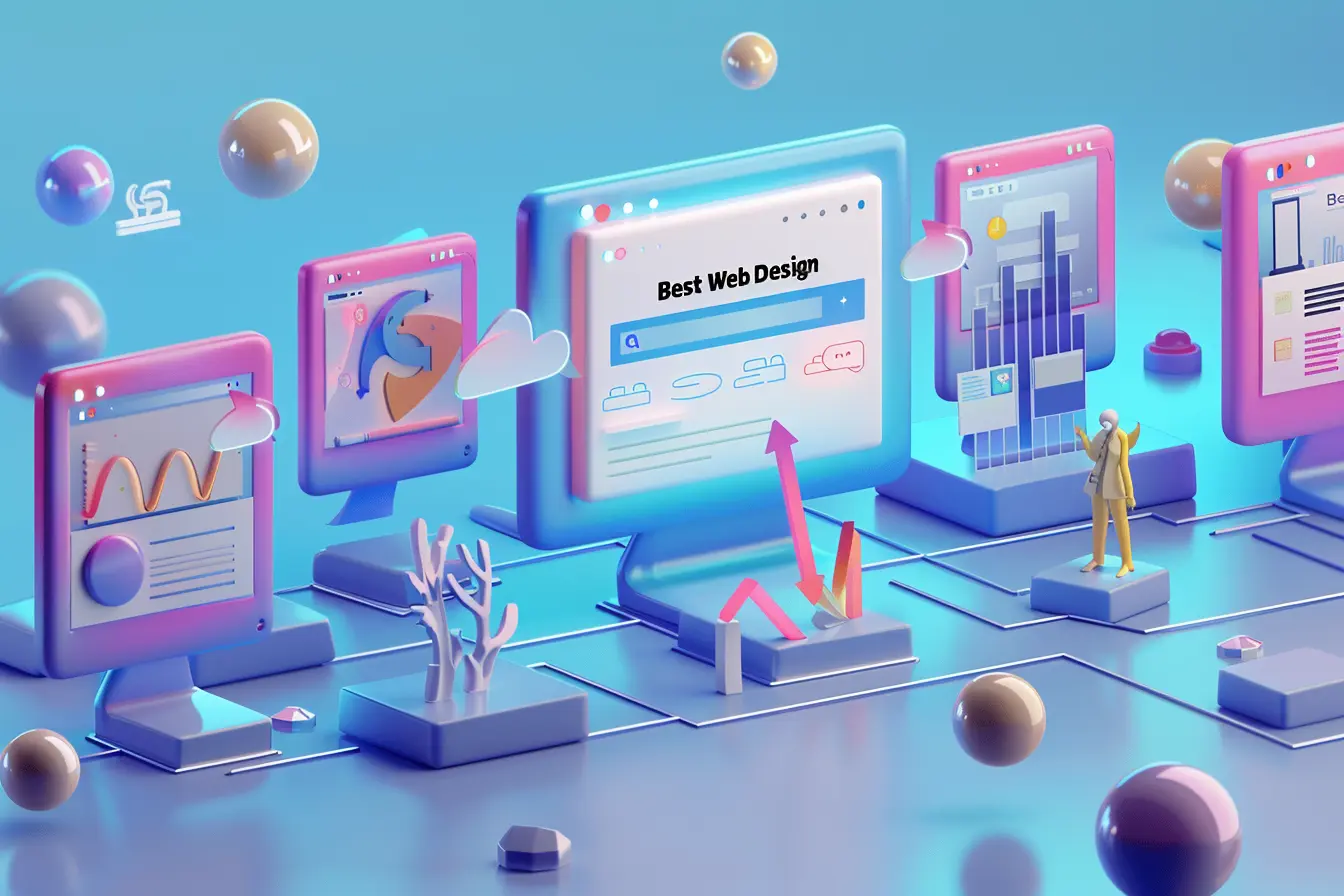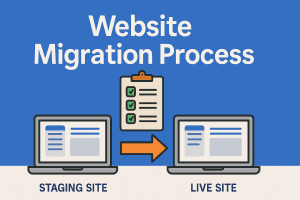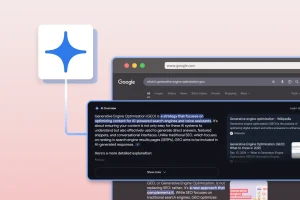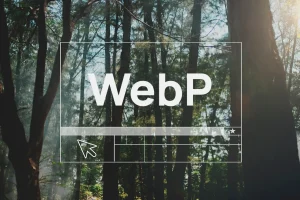The Crucial Online Gateway for Startups and SMEs

In the rapidly evolving digital landscape, having an online presence is no longer a luxury for startups and Small and Medium-sized Enterprises (SMEs) – it’s a necessity. Did you know that nearly 7 billion smartphones worldwide, and 95% of Americans have access to a cell phone (Exploding Topics, 2023)? That’s a massive pool of potential customers you’re missing out on if you don’t have a website.
This statistic alone underscores startups and SMEs’ need to establish a solid online presence through their websites. Beyond mere visibility, a website serves as a platform for businesses to showcase their uniqueness, credibility, and professionalism. It offers an unparalleled opportunity to control the narrative around your brand, something that’s often diluted on social media and e-commerce platforms. This article delves into why websites are indispensable tools for businesses aiming for growth and sustainability, even in the face of burgeoning social media and e-commerce platforms.
The important of website for startups and SMEs

The absence of a website for startups and Small and Medium-sized Enterprises (SMEs) is akin to having an invisible storefront. A website is not just a digital asset; it’s a fundamental component of your business’s identity and growth strategy. Here are several reasons why a website is indispensable for startups and SMEs:
1. Credibility and Professionalism
First impressions are crucial; for many consumers, your website is the first point of contact with your business. A professional, clean, and easy-to-navigate website instantly boosts your credibility. It tells potential customers that you’re a legitimate and serious business, willing to invest in providing them with the best possible experience. In contrast, businesses without a website or a poor online presence may be viewed as less professional or untrustworthy.
2. 24/7 Accessibility and Global Reach
Unlike a physical store with operational hours, a website is accessible around the clock. This means that your business is always open to potential customers, allowing them to engage with your brand, explore your products or services, and make purchases at their convenience. Moreover, a website provides a global platform, removing geographical barriers and opening your business to international markets, which is particularly beneficial for startups and SMEs looking to expand their reach.
3. Brand Storytelling:
Your website is the perfect platform to craft a compelling brand narrative. Go beyond product listings and showcase your company’s values, mission, and what makes you unique. Use high-quality visuals, engaging copywriting, and even interactive elements to tell your brand story and connect with your audience on an emotional level.
4. Customer Acquisition and Retention:
A well-designed website acts as a lead generation machine. By strategically placing contact forms, email sign-up options, and clear calls to action, you can capture valuable customer information and nurture leads into loyal customers. The website can also serve as a self-service portal, offering FAQs, product manuals, and other resources that empower customers and reduce support requests.
5. Data-Driven Decisions:
Websites provide valuable insights into your target audience and their behavior. Analytics tools can track user engagement, website traffic sources, and even customer journeys. This data allows you to make informed decisions about your marketing strategies, website content, and overall business development.
6. Competitive Edge:
In today’s competitive landscape, a well-designed and informative website sets you apart from the crowd. It demonstrates your commitment to providing a positive customer experience and positions you as a leader in your industry.
Do Startups or SMEs need a website if they have Social media pages like Facebook, Instagram, or e-commerce platforms?

While social media pages (like Facebook and Instagram) and e-commerce platforms (Amazon, eBay, Etsy, BigCommerce, Shopee..) offer valuable channels for customer engagement and sales, they come with limitations. Here’s why:
– Limited Control: Social media platforms constantly evolve their algorithms, and you ultimately don’t own your space on those platforms. A website gives you complete control over your brand message and user experience.
– Comprehensiveness: Your website can house all the information a customer might need, from product details and pricing to contact information and customer testimonials. Social media posts are typically bite-sized and can’t offer the same depth of content.
– Lead Generation: Websites allow you to capture leads through contact forms, email signups, and calls to action. Social media, while great for engagement, makes lead generation a bit trickier.
How to find a good website design and development agency: Selecting the Perfect Partner for Your Digital Journey

Building a website is an investment in your company’s future. To ensure your vision translates into a user-friendly and high-performing website, partnering with the right web design and development company is crucial. Here’s a comprehensive guide to help you find the perfect fit for your startup or SME:
1. Define Your Needs and Goals:
The first step is to have a clear understanding of your website’s objectives. What do you want your website to achieve? Here are some common goals to consider:
– Increased brand awareness: Attract new visitors and establish your brand identity online.
– Lead generation: Capture valuable customer information and nurture leads into paying customers.
– Boosting online sales: Create a seamless e-commerce experience that drives sales conversions.
– Providing exceptional customer service: Offer self-service options and easily accessible information for your customers.
2. Research Potential Web Design Companies:
Once you understand your goals, it’s time to explore potential web design partners. Here are some key factors to consider during your research:
– Industry Experience: Look for companies that have experience working with startups or SMEs in your industry. This ensures they understand your specific needs and challenges.
– Portfolio Review: Carefully evaluate the company’s portfolio to assess their design aesthetic and development capabilities. Do their websites align with your brand vision and target audience?
– Client Testimonials and Reviews: Read what past clients have to say about their experience working with the company. Positive testimonials and reviews can provide valuable insights into the company’s work ethic, communication style, and ability to deliver results.
3. Project Scope and Budget:
– Request Proposals: Once you’ve shortlisted a few potential companies, request proposals outlining their services, project timelines, and costs.
– Compare and Negotiate: Don’t be afraid to compare proposals and negotiate terms to ensure you find the best fit for your budget.
4. Communication and Collaboration:
– Company Culture: Choose a company with a culture that aligns with your own. Look for a team that is open to collaboration, responsive to your needs, and fosters clear and consistent communication throughout the design and development process.
There are many resources available online to help you with your search. Here are a few suggestions:
– Clutch.co: A B2B platform that connects businesses with service providers, including web design companies.
– Upwork.com: A freelance marketplace where you can find web designers and developers for hire.
– Website design industry publications: Stay updated on the latest trends and best practices by reading articles from reputable sources.
Choosing the right web design and development company is pivotal for creating a website that truly represents your startup or SME. Align, for instance, specializes in delivering bespoke website design and coding services tailored to the unique needs of businesses. The key is to look for a partner that not only has the technical expertise but also a deep understanding of your industry and target audience. Consider factors like the company’s portfolio, client testimonials, and their approach to user experience (UX) design. A good agency should be able to guide you through the process, from conceptualization to launch, ensuring your website aligns with your business goals and customer needs.
Conclusion: Your Website, Your Business Lifeline

In conclusion, while social media and e-commerce platforms are integral to digital marketing strategies, they should complement, not replace, a well-designed website. A website is more than just an online brochure; it’s a vital tool for establishing credibility, enhancing visibility, and driving business growth. For startups and SMEs aiming to carve out their niche in the digital world, a website is not an option but a necessity. By investing in a professional website, you’re laying the foundation for long-term growth and success.







